#Sztáray
Explore tagged Tumblr posts
Text


“Sissi & Moi” biopic de Frauke Finsterwalder - sur les dernières années de l'Impératrice Elisabeth d'Autriche dite “Sissi” (1854-1898) du point de vue de sa dame d'honneur Irma Sztáray (1863-1940) - avec Sandra Hüller, Susanne Wolff, Markus Schleinzer, Georg Friedrich, Tom Rhys Harries, Anthony Calf, Sophie Hutter et Maresi Riegner, novembre 2023.
#films#Biopic#hommage#spirit#Sissi#FrançoisJosephI#Sztáray#Spencer#Smythe#Victoria#Finsterwalder#Huller#Wolff#Schleinzer#RhysHarries#Calf#Hutter#Riegner#Friedrich
3 notes
·
View notes
Text


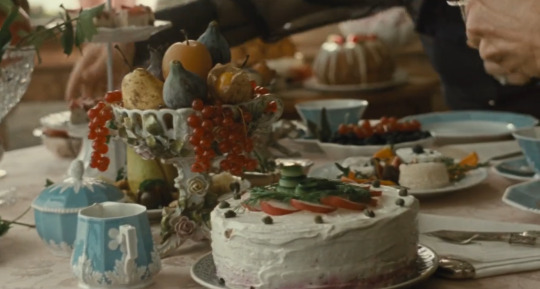

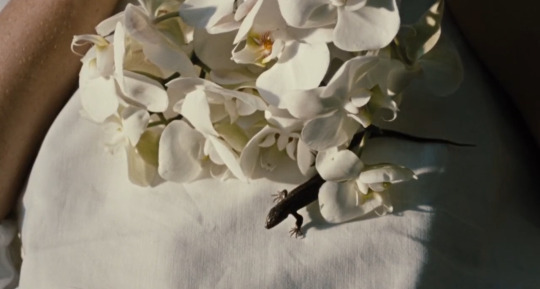

SISI & ICH (2023), dir. Frauke Finsterwalder
#sisi & ich (2023)#sisi & i (2023)#film#screencaps#frauke finsterwalder#sandra hüller#susanne wolff#irma sztáray#elisabeth of austria#kaiserin elisabeth von österreich#period drama#costume drama#cinema#food#idk y'all the soundtrack to this was pretty fire at times i didn't mind it being anachronistic#idk if i should tag this as lgbtq+ bc obviously some characters are but anyway#german cinema#sisi und ich#sisi and i
107 notes
·
View notes
Text
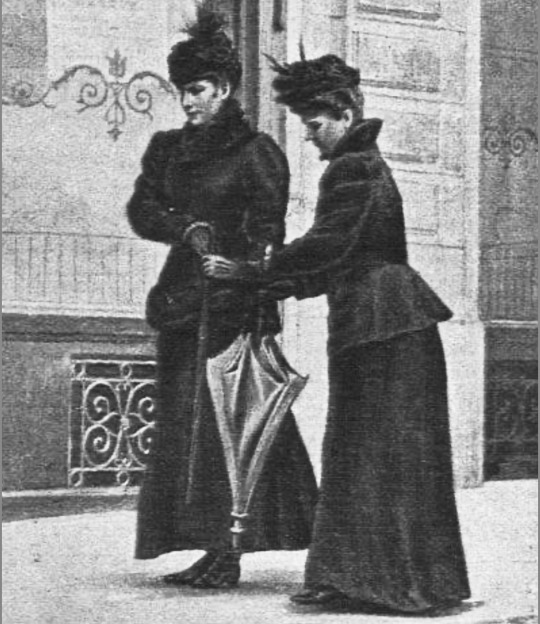
On this day; September 10th 1898, Empress Elisabeth of Austria was assassinated by Italian anarchist Luigi Lucheni in Geneva Switzerland.
On September 10th at 1:35 pm the Empress and Countess Irma Sztaray, her lady in waiting leave the hotel. All the other staff in service of Elisabeth has already left Geneva by train, and stubborn as she is, Elisabeth refused to take bodyguards with her.
[Anarchist Luigi Lucheni] approached the ladies when they walk by and acts as if he stumbles and falls against Elisabeth, stabbing her with a sharpened needle file. Elisabeths falls down, but is helped up again by a coach driver and she and the countess continue to walk to the gangway and board the ship. Elisabeth even talks to the countess, saying that Luigi perhaps tried to steal her watch. She nor any of the bystanders, realize that she is stabbed. Luigi did not miss, his file punctured the body of the empress for 8.5 cm, broke the fourth rib, pierced the lung and penetrated the heart fully. The fact that Elisabeth could get up and walk on is first of all due to the good shape Elisabeth is in.
Empress Elisabeth faints for the first time when on board of the ship. She comes to again, probably because the new blood flow that reaches her brain because of her horizontal position as she is now laying down. She asks the countess what has happened, still no [idea] of her situation. Only after opening of the corset by the countess, causing the blood reserve to spread over the rest of the body, the empress faints for the second and last time.
Countess Sztaray than sees the small blood stain on Sisi’s breast and raises the alarm. The captain of the boat, Captain Roux, is made aware of the identity of the fainted lady and immediatley turns the boat around towards the landing stage in front of the Hotel Beau-Rivage. A stretcher is improvised from sails and peddles and six boatmen carry the empress back to her hotel room.
To check if the Empress is still alive Dr. Mayer makes a small incision in Sissi's arm, but there is no blood flow, and the Empress is pronounced dead at 2:20, September 10th, 1898. The priest that arrived together with the doctors is too late to grant her absolution.
Source: (x)
#Sorry! I couldn’t find a primary source!#empress elisabeth of austria#elisabeth of austria#1898#on this day#september 10#countess Irma Sztáray#Irma Sztáray#luigi lucheni#assasination#empress sisi#Empress Elisabeth of Austria death
34 notes
·
View notes
Text

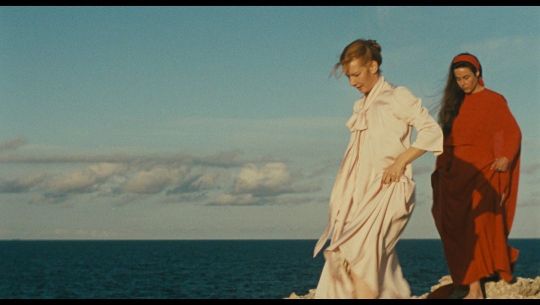
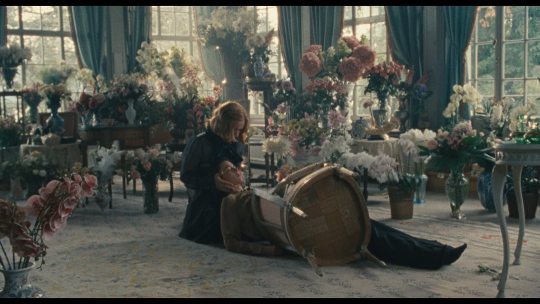

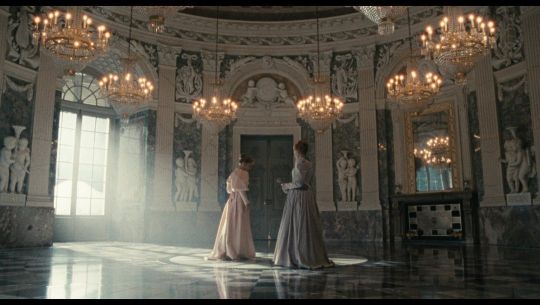
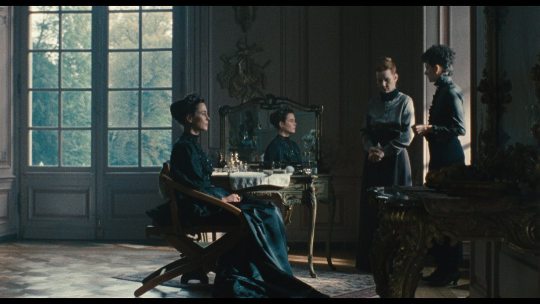
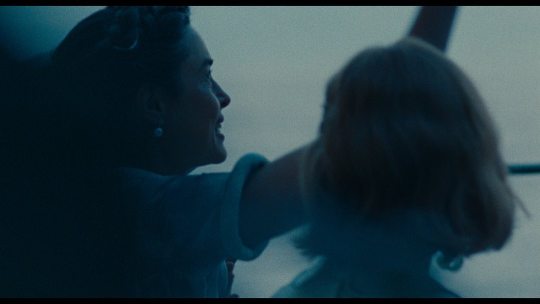
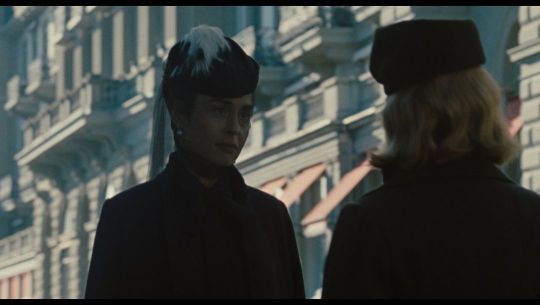
Susanne Wolff and Sandra Hüller as Empress Elisabeth and Countess Irma Sztáray in Sisi & Ich (2023).
#Sisi und ich#Sisi and I#costume drama#historical drama#period drama#Susanne Wolff#Sandra Hüller#elisabeth in bavaria#elisabeth of austria hungary#elisabeth of austria#irma sztáray#german movie
64 notes
·
View notes
Text






Blue moments - Susanne Wolff and Sandra Hüller as Empress Elisabeth and Countess Irma Sztáray. Sisi and I / Sisi & Ich (2024).
#sisi and I#sisi & ich#sisi & I#tv and film#oceancentury#sandra hüller#Sandra huller#Blue#august#august 2024#blue august#screenshots
47 notes
·
View notes
Text


Archduchess Marie Valerie's journal entry on the death of her mother Empress Elisabeth of Austria, in 1898 (written on 21 September):
10 September. In the evening at 7.30 o'clock I returned with Maria from a tour of our poor… souper… then went with the three grown-ups to the chapel for evening prayer. Maria came with me, I did not pay much attention to her, did not notice her disturbed expression. I was no more devout than usual… Coming out into the corridor, while the children ran into their room, Maria asked me to come into my writing room, she had something to tell me. I was still thinking only of a small house cross, but when I looked at her, my heart stood still. “The Archduke?” “No — Her Majesty.” I don't know whether I asked further questions or whether I immediately said the word “dead”? whether she told me right there in the corridor or already in the room: “Murdered by an Italian anarchist — in the hotel in Geneva.” I don't know. My hand still trembles when I think back to that hour… Remorse for having returned her great love so badly, and above all… more and more the unspeakable pity for him, the poor, old, sorrowful and grief-stricken father, and the probably also futile question of whether it was not too much for a poor human heart? We were on our knees, Maria and I — in the room and in the chapel. Then I sent a telegram to Franz [Archduke of Austria, Valerie's husband]. And to Papa [Emperor Franz Josef I], “I'll come to you tomorrow morning at half past six.” He himself had telegraphed to Maria that she should “teach me in a good way”. I went in to see the children. Ella [Elisabeth, Valerie's eldest child] was not quite in bed yet … When I kissed and shook her, hardly knowing what I was doing, telling her softly: “She knows, that dear Grandmama has died,” she began to cry softly, as if she understood. God bless the good child! The boys were already in bed. Hedwig [Valerie's second daughter] was already asleep. From one room to the other and with Maria out into the quiet starry night. — I lay down too, but sleep was out of the question. At half past one we drove away, Maria and I … arrived in Penzing at half past six in the morning. How the morning dawned over the Vienna Woods, which she loved so much, and how unspeakable fear shook me before seeing Papa again, those are hours that one is amazed to have survived. Papa stood at the foot of the big staircase at Schönbrunn and we fell into each other's arms. That was the first time he was able to cry, he told me later. But he was still stunned then, and soon afterwards he was calm again, as he had been after Rudolf's death. We went to Sunday mass together, and then I was allowed to spend that first day with him almost without interruption, sitting next to his desk while he worked as usual, reading with him the more detailed news coming from Geneva, helping him to receive the condolence visits of the family members… Prime Minister Thun, who cried like a child — a good feeling that Papa has such servants around him. The unfortunate person who had to bring Papa the first message from Vienna to Schönbrunn was Adjutant General Count Paar with the still undetermined telegram from Irma Sztáray [Empress Elisabeth's lady-in-waiting]; “Her Majesty the Empress seriously wounded”, which was very soon followed by the second: “Her Majesty the Empress just died at 2 o'clock in the Hotel Beaurivage.” Papa seems to have immediately thought of an assassination, although he repeatedly said: “How can one assassinate a woman who has never harmed anyone?” Papa's intention to leave for Geneva immediately was thwarted by the second telegram.
(Translation by DeepL, keep in mind that in a machine translation a lot of nuances may/did got lost)
#i can't find who maria is - but probably someone from valerie's household#archduchess marie valerie of austria#empress elisabeth of austria#franz josef i of austria#elisabeth franziska of austria countess of waldburg-zeil-hohenems#on this day in history
151 notes
·
View notes
Text
Elisabeth Szeged 2009
Every year there is an open-air theatre festival in Szeged, Hungary. Elisabeth has been there three times - in 1996, 2009 and 2023.
The 2009 version is probably the least known of them, also there's no video. Recently I found the cast, all the actors are from the Budapesti Operettszínház production.
Elisabeth - Kata Janza / Nikolett Füredi
Der Tod - Szilveszter P. Szabó / Zsolt Homonnay
Luigi Lucheni - Tamás Földes / Tamás Száraz
Franz Joseph - Zoltán Bereczki / Ádám Bálint
Sophie - Piroska Molnár / Veronika Nádasi
Rudolf - Attila Dolhai
Ludovika/Frau Wolf - Anikó Felföldi
Max - Péter Marik
Little Rudolf - Márk Mohácsi
Gräfin Eszterházy - Ildikó Sz. Nagy
Graf Grünne - Lajos Csuha
Gräfin Sztáray - Bea Nagy
Rauscher - Csaba Jantyik
Helene - Zsuzsa Ullmann
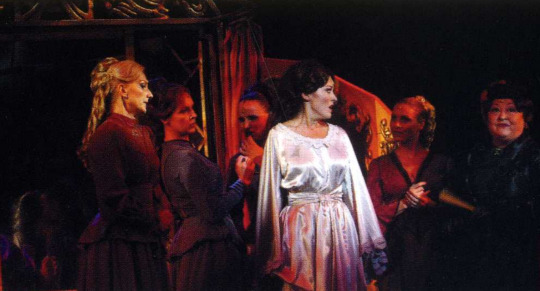
Ildikó Sz. Nagy (Gräfin Eszterházy), Nikolett Füredi (Elisabeth), Piroska Molnár (Sophie)
#musical#musicals#elisabeth#elisabeth das musical#musical theatre#hungarian musicals#szeged#budapestioperettszínház#dolhai attila#janza kata#füredi nikolett#szabó p. szilveszter#földes tamás
4 notes
·
View notes
Quote
a kormánynak kezdettől fogva elvi és gyakorlati fenntartásai vannak a szankciókkal összefüggésben, aminek egyébként elég határozottan hangot is adtunk itthon és a nemzetközi környezetben is. Egyrészt azért, mert úgy látjuk, hogy nem változtatnak az alapvető feltételeken, nem változtatnak az egyes szereplők politikáján, másrészt azért, mert sokkal jobban ártanak nekünk, Európának, Magyarországnak, mint a megcélzott entitásoknak. Ezt kezdettől fogva hangsúlyozzuk. Az más kérdés, hogy az EU-egység érdekében előfordult több alkalommal, hogy kompromisszumra törekedtünk, és elfogadtuk az egységet, nem vétóztunk.
Sztáray
5 notes
·
View notes
Text
Events 12.2 (before 1950)
915 – Pope John X crowns Berengar I of Italy as Holy Roman Emperor (probable date). 1775 – American Revolutionary War: USS Alfred becomes the first vessel to fly the Grand Union Flag (the precursor to the Stars and Stripes); the flag is hoisted by John Paul Jones. 1799 – War of the Second Coalition: Battle of Wiesloch: Austrian Lieutenant Field Marshal Anton Sztáray defeats the French at Wiesloch. 1800 – War of the Second Coalition: Battle of Hohenlinden: French General Jean Victor Marie Moreau decisively defeats the Archduke John of Austria near Munich. Coupled with First Consul Napoleon Bonaparte's earlier victory at Marengo, this will force the Austrians to sign an armistice and end the war. 1800 – United States presidential election: The Electoral College casts votes for president and vice president that result in a tie between Thomas Jefferson and Aaron Burr. 1818 – Illinois becomes the 21st U.S. state. 1834 – The Zollverein (German Customs Union) begins the first regular census in Germany. 1854 – Battle of the Eureka Stockade: More than 20 gold miners at Ballarat, Victoria, are killed by state troopers in an uprising over mining licences. 1859 – Nigeria's first newspaper, missionary Henry Townsend's Iwe Irohin, was published. 1881 – The first issue of Tamperean daily newspaper Aamulehti ("Morning Paper") is published. 1898 – The Duquesne Country and Athletic Club defeats an all-star collection of early football players 16–0, in what is considered to be the first all-star game for professional American football. 1901 – In a State of the Union message, U.S. President Theodore Roosevelt delivers a 20,000-word report to the House of Representatives asking Congress to curb the power of trusts "within reasonable limits". The speech was not delivered in person. 1904 – The Jovian moon Himalia is discovered by Charles Dillon Perrine at California's Lick Observatory. 1910 – Modern neon lighting is first demonstrated by Georges Claude at the Paris Motor Show. 1912 – Bulgaria, Greece, Montenegro, and Serbia (the Balkan League) sign an armistice with the Ottoman Empire, temporarily halting the First Balkan War. (The armistice will expire on February 3, 1913, and hostilities will resume.) 1919 – After nearly 20 years of planning and construction, including two collapses causing 89 deaths, the Quebec Bridge opens to traffic. 1920 – Following more than a month of Turkish–Armenian War, the Turkish-dictated Treaty of Alexandropol is concluded. 1925 – Final agreement is signed between the Irish Free State, Northern Ireland and the United Kingdom formalizing the Partition of Ireland. 1929 – President Herbert Hoover delivers his first State of the Union message to Congress. It is presented in the form of a written message rather than a speech. 1938 – Nazi Germany issues the Decree on the Utilization of Jewish Property forcing Jews to sell real property, businesses, and stocks at below market value as part of Aryanization. 1944 – Greek Civil War: Fighting breaks out in Athens between the ELAS and government forces supported by the British Army.
0 notes
Text
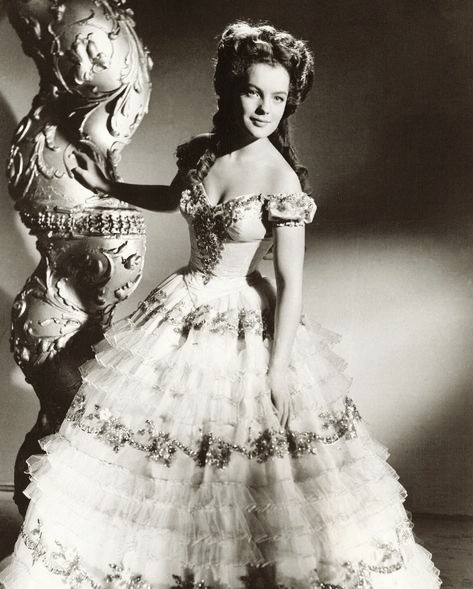
‹Sisi› - Elisabeth von Österreich-Ungarn
Kurze Einführung in ihre Biografie
Am 10. September 1898 verlässt Kaiserin Elisabeth von Österreich zur Mittagszeit ein Genfer Hotel, um über den See nach Montreux zu fahren. Ihre Hofdame, die Gräfin Sztáray, gibt später zu Protokoll: “Beim Hotel ‘De la Paix’ kam ein Mann auf uns zu. Unmittelbar vor uns schien er plötzlich zu straucheln; er machte eine Bewegung mit der Hand. Ich glaubte, um sich beim Stolpern aufrecht zu halten. Die Kaiserin sank zu Boden. ‘Es ist mir nichts geschehen’, antwortete sie ruhig. Wir erreichten die Anlegestelle. Plötzlich sagte sie mit erstickender Stimme: ‘Jetzt, Ihren Arm, schnell, bitte!’” Kaiserin Elisabeth stirbt noch auf dem Fährboot. Ein kaum bemerkter Stich mit einer spitzen Tischlerfeile hat sie mitten ins Herz getroffen. Der italienische Anarchist Luigi Lucheni verhehlt seine Befriedigung nicht, ein so prominentes Mitglied der verhassten Aristokratie ermordet zu haben. Elf Jahre nach seiner Verurteilung zu lebenslänglichem Kerker erhängt sich Lucheni in seiner Zelle. Die 60-jährige, von Depressionen geplagte Kaiserin hat mehrmals Todesahnungen geäußert, aber Polizeischutz für ihre Reisen abgelehnt. Zu ihrem Schwager, dem Herzog von Alecon, sagte sie, kurz vor dem Attentat: “Wir werden eines gewaltsamen Todes sterben…”
Elisabeth ist die Tochter des bayerischen Herzogs Maximilian von Wittelsbach und seiner Frau Ludovika. 1853, mit 15 Jahren, wird Sisi, wie man sie allgemein nennt, überraschend zur Gattin des österreichischen Kaisers Franz Joseph auserkoren. Der junge Monarch hat sich Hals über Kopf in die kleine Schwester der ihm zugedachten Helene verliebt. Sisi, später oft als eine der schönsten Frauen ihrer Zeit tituliert, ist fröhlich, witzig und ungestüm. Ihre Jugend hat sie fast ausschließlich auf dem Landsitz in Possenhofen verbracht. Ihr Vater, der nichts von aristokratischer Erziehung hält, hat einmal zu ihr gesagt: “Wenn du und ich nicht Fürsten wären, wären wir zweifellos Reiter in einem Wanderzirkus!” Es ist daher nicht verwunderlich, dass sich die junge Kaiserin nur schwer mit dem Wiener Hofzeremoniell und der strengen Schwiegermutter Sophie zurechtfinden kann. Sisi bringt vier Kinder zur Welt: die Prinzessinnen Sophie und Gisela, Thronfolger Rudolf und Marie Valerie. Sobald diese dem Kindesalter entwachsen sind, nutzt sie jede Gelegenheit, um ihren repräsentativen Pflichten zu entgehen. Franz Joseph toleriert die Lebensweise seiner Frau, die ihre Zeit am liebsten mit Kuraufenthalten und ausgedehnten Reisen verbringt. Elisabeth, die auch gerne Gedichte schreibt, verfällt immer mehr in tiefe Melancholie, die sie ihrem Cousin, dem unglücklichen Ludwig II. von Bayern, seelenverwandt macht. Nach dem Selbstmord ihres Sohnes Rudolf zieht sich die beim Volk beliebte Kaiserin gänzlich vom Hofleben zurück. In den Zeitungen kursieren immer häufiger Meldungen über eine fortschreitende Geisteskrankheit Elisabeths. Sie zeigt aber auch Besonnenheit und Toleranz, nicht zuletzt dadurch, dass sie ihrem vernachlässigten Gatten Franz Joseph den Umgang mit der Burgschauspielerin Katharina Schratt empfiehlt. Sie selbst lässt sich auf der Insel Korfu einen eigenen Palast, das Achilleion, errichten. Viel Zeit verbringt die Kaiserin auch auf Schloss Gödöllö in Ungarn. Ihre Vorliebe für die Magyaren und ihr Nahverhältnis zum Revolutionär Andrássy haben jahrelang immer neuen Gerüchten Nahrung gegeben. Die große Leidenschaft von Elisabeth ist aber zeitlebens das Reisen. Sie führt die Kaiserin im Herbst 1898 nach Genf, wo sie der Tod ereilt.
Quelle: Siehe Link im Titel
0 notes
Text
High-Level Segment - International Conference on Victims of Terrorism.
The High-Level Segment will open with remarks from the conference's organizers, the UN Office of Counter-Terrorism (UNOCT) and the Kingdom of Spain as well as a call to action by victims and survivors of terrorism. Remarks from ministerial-level speakers and principals of international organizations and UN entities will follow.
Introductory Remarks: Mr. Mauro Miedico,Director, United Nations Counter-Terrorism Centre, United Nations Office of Counter-Terrorism
Opening Statement:
· Statement by H.E. Mr. Salih Husain Ali, Ambassador Extraordinary and Plenipotentiary of the Republic of Iraq to Spain and Co-Chair of the Group of Friends of Victims of Terrorism, on behalf of H.E. Mr. Fuad Hussein, Deputy Prime Minister and Foreign Minister of the Republic of Iraq.
Ministerial Statements:
· H.E. Ms. Victoria Eugenia Villaruel,Vice-President of Argentina
· H.E. Mr. Javier Martínez-Acha Vásquez, Minister of Foreign Affairs of Panama
· H.E. Mr. Waleed bin Abdulkarim El-Khereiji, Vice Minister of Foreign Affairs of the Kingdom of Saudi Arabia
· H.E. Ms. Josefina Vidal Ferreiro, Vice-Minister of Foreign Affairs of Cuba
· H.E Sevim Sayım Madak, Deputy Minister of Family and Social Services of the Republic of Türkiye
· H.E. Joan Antoni León Peso, Secretary of State, Ministry of Justice and Interior, Andorra
· H.E. Mr. Péter Sztáray, State Secretary for Security Policy of Hungary
Heads of UN Entities:
· Mr. Miguel Ángel Moratinos, High Representative, United Nations Alliance of Civilizations
· Mr. Volker Türk, United Nations High Commissioner for Human Rights (via pre-recorded video)
· Ms. Ghada Fathi Waly, Under-Secretary-General, United Nations Office on Drugs and Crime (via live video)
Eminent Speakers:
· H.E. Joan Antoni León Peso, Secretary of State, Ministry of Justice and Interior, Andorra
· H.E. Mr. Sos Avetisyan, Ambassador of the Republic of Armenia to Spain
· H.E. Ms. Rosemary Morris-Castico, Ambassador of Australia to Spain
· H.E. Mr. Mohammad Sarwar Mahmood, Ambassador of the People's Republic of Bangladesh to Spain
· H.E. Mr. Yao Jing, Ambassador of the People's Republic of China to Spain
· H.E. Mr. Dinesh Patnaik, Ambassador of India to Spain
· H.E. Mr. Zahoor Ahmed, Ambassador of Pakistan to Spain
· H. E. Mr. Robert Krmelj, Ambassador of the Republic of Slovenia to Spain
· H.E. Mr. Hasan Alagla, Chief, Department of Human Rights, Presidency of State Security, Kingdom of Saudi Arabia
· Ms. Alexandra Louis, Interministerial Delegate for Victim Support, France
· Hon. Rita Superman, Rapporteur on Counter-Terrorism, Parliamentary Assembly of the Mediterranean (PAM)
· Statement by Mr. Ben Saul, Special Rapporteur on the promotion and protection of human rights and fundamental freedoms while countering terrorism (via pre-recorded video)
----------------------------------------------------------------------------------------
Building on the momentum created by the first United Nations Global Congress of Victims of Terrorism in 2022, the United Nations International Conference on Victims of Terrorism is hosted by the Kingdom of Spain in the city of Vitoria-Gasteiz on 8-9 October 2024. The conference brings together experts, practitioners, and stakeholders from diverse backgrounds. It aims to foster collaboration, inspire innovative solutions, and advocate for a holistic approach to addressing the needs of victims of terrorism while striving to build more peaceful and resilient societies globally.
Related Sites and Documents
More information and latest programme
Watch the High-Level Segment - International Conference on Victims of Terrorism!

#high-level segment#victims of terrorism#united nations office of counter terrorism#innovative solutions#terror attack#unodc#ohchr#special rapporteurs#group of friends of victims of terrorism#un entities#call to action
0 notes
Text
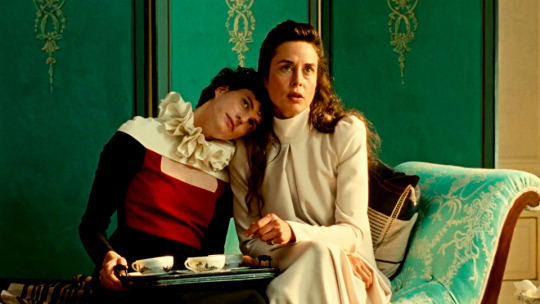
Sophie Hutter et Susanne Wolff dans “Sissi & Moi” biopic de Frauke Finsterwalder - sur les dernières années de l'Impératrice Elisabeth d'Autriche dite “Sissi” (1854-1898) du point de vue de sa dame d'honneur Irma Sztáray (1863-1940) - novembre 2023.
0 notes
Photo

Service house, Mihály Sztárai square, Budapest, 1970. From the Budapest Municipal Photography Company archive.
67 notes
·
View notes
Text
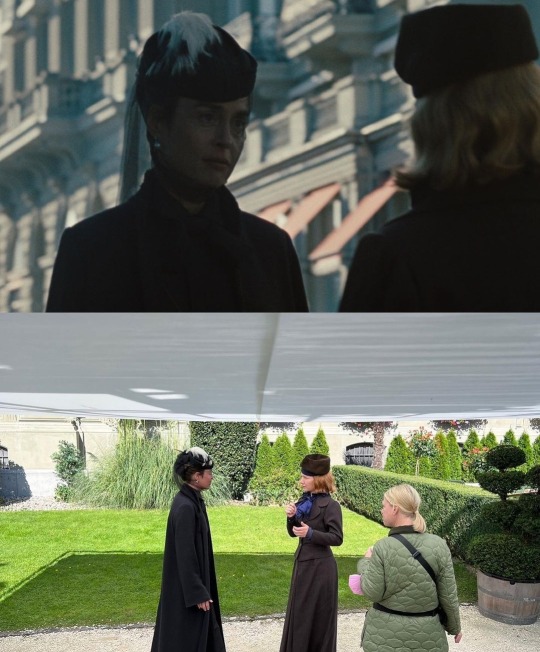
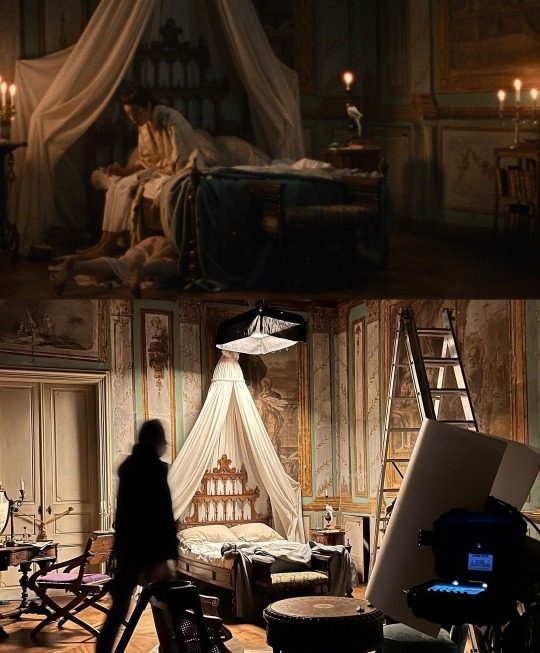
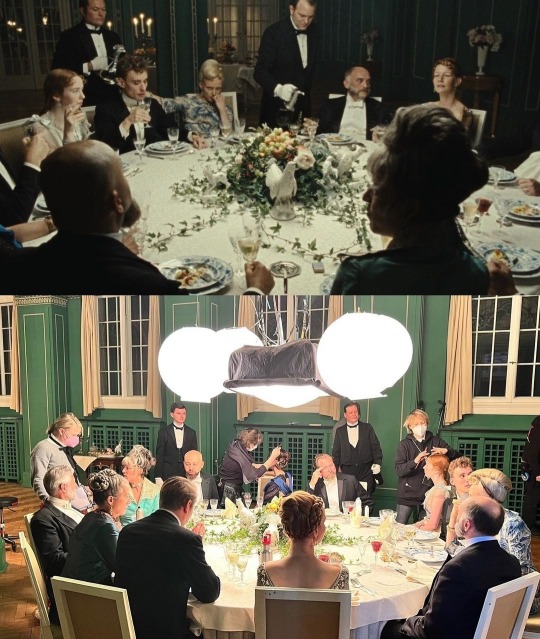

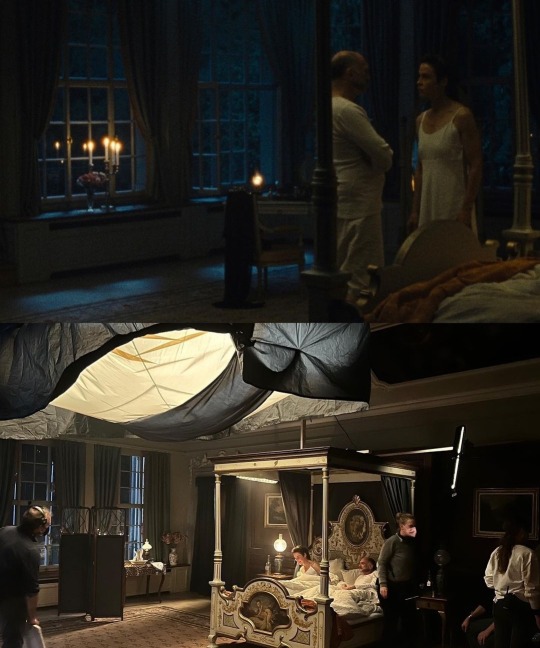
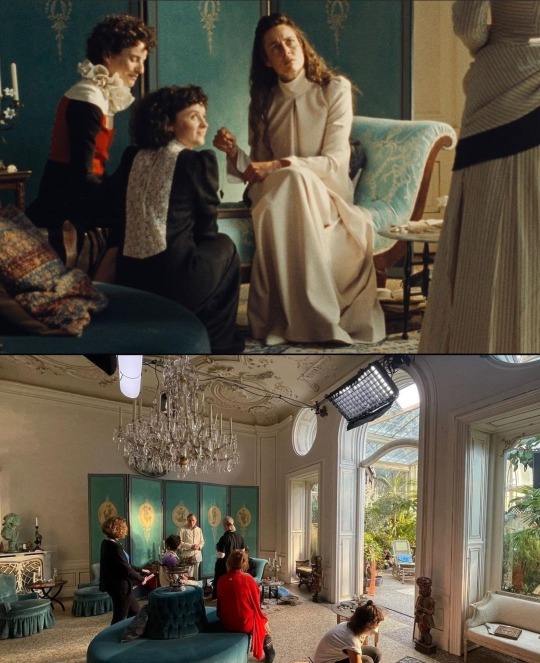
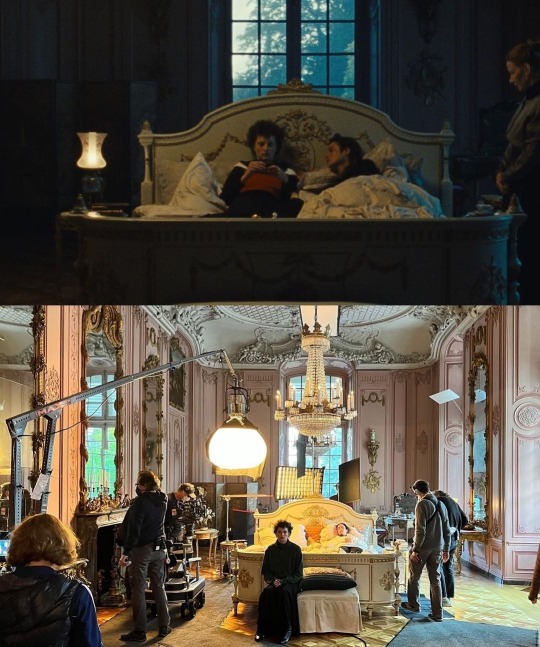
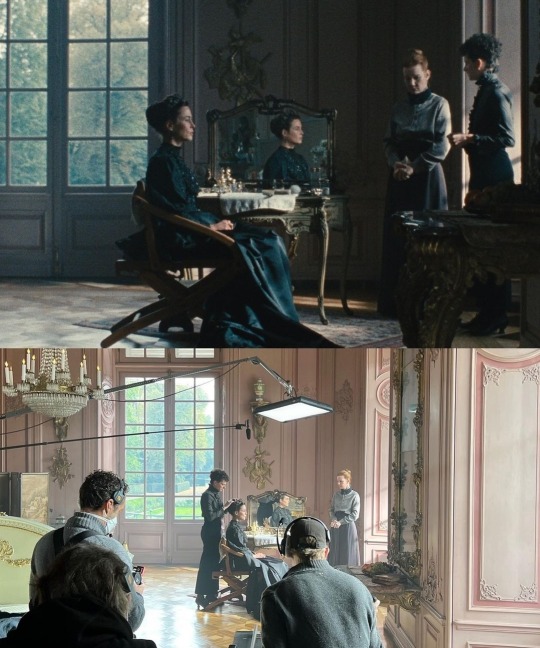
Director of Photography Thomas W. Kiennast shared some movie vs. behind the scenes impressions from Sisi & Ich (2023).
#Sisi und Ich#Sisi and I#costume drama#historical drama#period drama#Thomas W. Kiennast#Susanne Wolff#Sandra Hüller#Markus Schleinzer#elisabeth of austria hungary#elisabeth of austria#Elisabeth in Bavaria#irma sztáray#emperor franz joseph#franz joseph of Austria#german movie#behind the scenes
42 notes
·
View notes
Text


Susanne Wolff and Sandra Hüller as Empress Elisabeth and Countess Irma Sztáray in Sisi & I / Sisi & Ich (2023).
#sisi and I#sisi and ich#sandra hüller#Sandra huller#tv and film#same#my post#empress sissi#Elizabeth of Austria#empress elisabeth of austria#royalty#royal#Blue#blue august#august#august 2024#oceancentury
9 notes
·
View notes
Note
just out of general curiosity, has there ever been any reports about how sisi looked when she was older?
Hello! There are few but detailed descriptions are rare, usually people who met Elisabeth in her old age didn't comment on how she looked, out of respect I suppose. Brigitte Hamann in her biography of Elisabeth quotes two testimonies of people that saw the empress as an older woman:
Many observers noted the great disparity between legend and reality. One of these was Prince Alfons Clary- Aldringen, who saw the Empress in Territet when he was a small boy in 1896—1897. He and his sister were in the hills behind the hotel where both the Clary family and the Empress were staying. When they saw the black, slender figure of the Empress, the children blocked her path, “and lo and behold, because no adult was nearby, this time the Empress did not open her fan! My sister curtseyed, and I made my best bow; she smiled at us in a friendly way — but I was stunned, for I saw a face full of wrinkles, looking as old as the hills.”
When the children spoke to their grandmother of the encounter, she solemnly told them, “Children, do not forget this day, when you saw the most beautiful woman in the world!” Alfons Clary: “In response to my smart-aleck answer, ‘But, Grandmama, her face is all wrinkled!’ I received a hefty slap.”
(...) Only very, very few still knew the Empress during her final years. To accidental observers, encounters with her during this time were deeply disappointing. For example, the actress Rosa Albach-Retty saw the Empress and her lady-in-waiting. Countess Sztaray, in 1898 in a small country inn in Bad Ischl. Since Elisabeth’s true appearance was nowhere pictured, Retty did not recognize the ladies at once. One was “clearly in mourning, for with her black, high-necked dress she wore black laced boots and a black hat, its thick veil turned back over a broad brim.” It was the Empress. The other lady, younger and in light clothing. Countess Sztaray, briefly went into the inn, leaving Elisabeth alone at the table. Rosa Albach-Retty: “For seconds Elisabeth stared downward, then with her left hand she took out her dentures, held them sideways over the edge of the table, and rinsed them off by pouring a glass of water over them. Then she put them back in her mouth. All this was done with such graceful nonchalance, but most particularly at such lightning speed, that at first I could not believe my eyes.” (1986, p. 360)
For what I could find, the sources for these statements are memoirs published decades after the end of the monarchy - unsurprising that they describe the empress in such a graceless way. For instance, compare it to how Countess Irma Sztáray, Elisabeth's lady-in-waiting, describes in her memoirs, published in 1909, her first meeting with the empress in 1894:
With a beating heart, I stood with my companion at the corner of the villa. I immediately caught sight of Her Majesty walking. Under her large white parasol, the light fell on her loose, billowing hair, which enveloped her royal figure like a sparkling cape. Then she turned around. We approached, and I was introduced. There was something about her that fascinated me. When her gaze, in which sadness could be read, fell upon me for the first time, I felt as if I had fallen under the spell of a supernatural being, and the painful feeling of my mediocrity, of my banality, invaded me. I don’t know if she noticed it, but the fact remains that she came to my aid with that gracious smile that bewitched you—and freed you. It was a truly unforgettable audience.
(...) My shyness melted like snow in the sun. I perceived the proximity of a great and beautiful soul who encouraged me, and even elevated me. Certainly, I had the impression that I would never reach her height of views, nevertheless I felt drawn, lifted up by her goodness. I guessed the force of her ascendancy over others, and immediately, from this first meeting, I placed my whole soul in her hands, by virtue of the irresistible attraction exercised by beings who aspire to elevated spheres. (2009, p. 30-31)
To be honest, I don't think any of these testimonies are particularly reliable, they're all from years after Elisabeth's death, and were written having in mind that there would be an audience reading them. So if I ever find a contemporary description of her I'll definitely share it!
Sources:
Hamann, Brigitte (1986). The Reluctant Empress: A Biography of Empress Elisabeth of Austria (translation by Ruth Hein)
Sztáray, Irma (2009). Mes années avec Sissi. Par la derniére dame d’honneur d’Elisabeth d’Autriche (translation by Michéle Valencia)
#fun fact: rosa albach-retty was romy schneider's grandmother. unfun fact: she was also a n*zi#empress elisabeth of austria#asks
11 notes
·
View notes